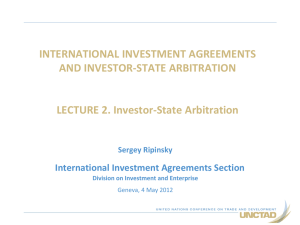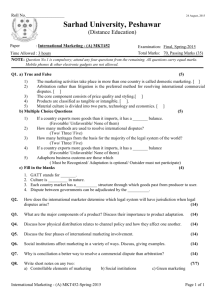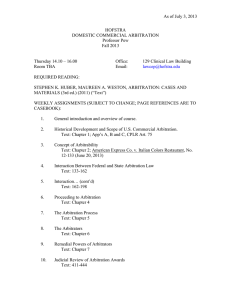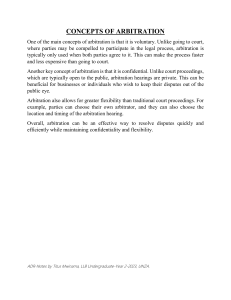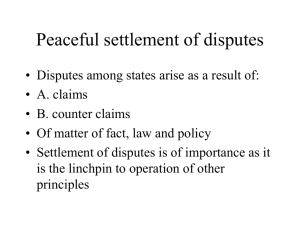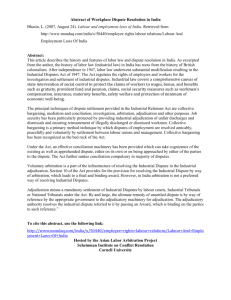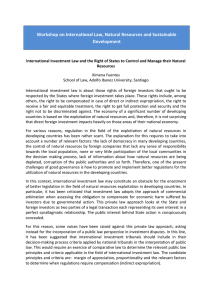Workshop on International Law, Natural Resources and Sustainable Development
advertisement
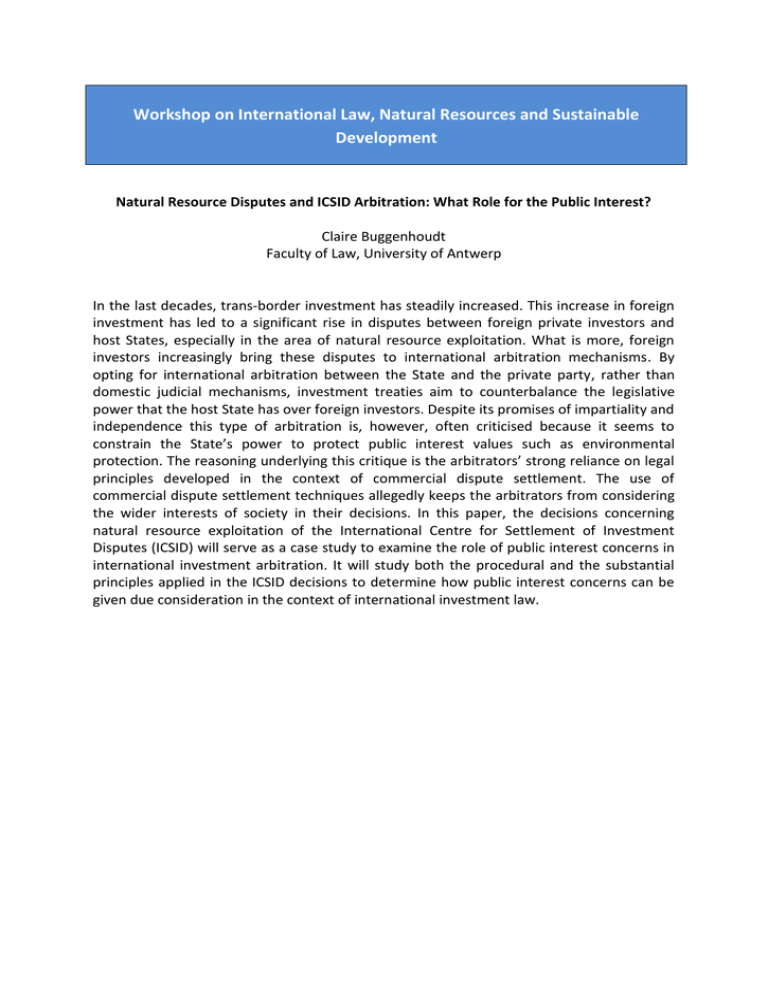
Workshop on International Law, Natural Resources and Sustainable Development Natural Resource Disputes and ICSID Arbitration: What Role for the Public Interest? Claire Buggenhoudt Faculty of Law, University of Antwerp In the last decades, trans-border investment has steadily increased. This increase in foreign investment has led to a significant rise in disputes between foreign private investors and host States, especially in the area of natural resource exploitation. What is more, foreign investors increasingly bring these disputes to international arbitration mechanisms. By opting for international arbitration between the State and the private party, rather than domestic judicial mechanisms, investment treaties aim to counterbalance the legislative power that the host State has over foreign investors. Despite its promises of impartiality and independence this type of arbitration is, however, often criticised because it seems to constrain the State’s power to protect public interest values such as environmental protection. The reasoning underlying this critique is the arbitrators’ strong reliance on legal principles developed in the context of commercial dispute settlement. The use of commercial dispute settlement techniques allegedly keeps the arbitrators from considering the wider interests of society in their decisions. In this paper, the decisions concerning natural resource exploitation of the International Centre for Settlement of Investment Disputes (ICSID) will serve as a case study to examine the role of public interest concerns in international investment arbitration. It will study both the procedural and the substantial principles applied in the ICSID decisions to determine how public interest concerns can be given due consideration in the context of international investment law.
